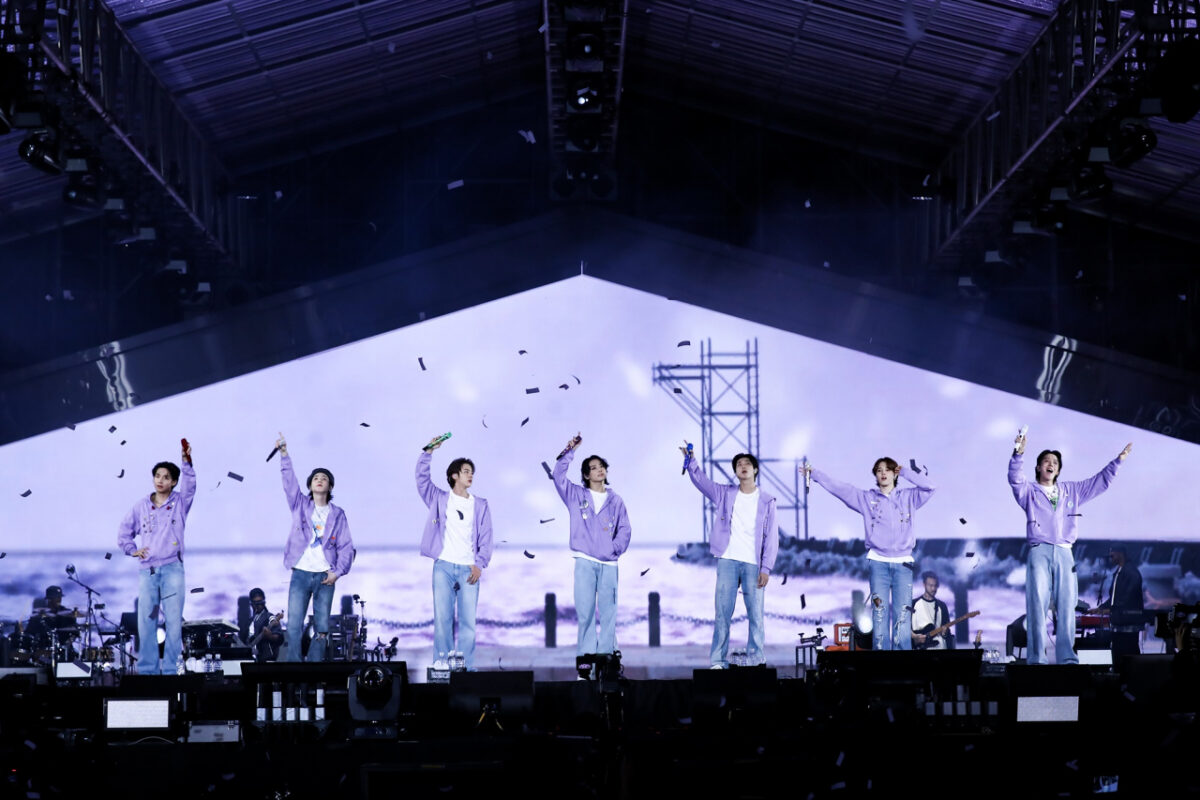Lasting K-pop idols pivotal to sustainable Hallyu

K-pop band BTS performs at its “Yet To Come” concert held in Busan in October 2022. Image: BigHit Music via The Korea Herald
K-pop stars and idols are now going through a phase of transition where versatility is required — both to stand strong as individual artists and to project a collective appeal when called to perform as teams.
How K-pop stars make it through this period of transition will largely determine whether South Korea will continue to command its global cultural reach and impact in years or decades to come in the name of Hallyu, or the Korean wave, said Kim Heon-sik, a culture critic who has written a book on the movement, “The K-Content Revolution.”
According to the annual report in March by the Foreign Ministry and its public policy arm Korea Foundation on how Hallyu is received worldwide, 68 percent of Hallyu exchange was linked to K-pop. The number of “Hallyu communities,” in-person or online groups formed to advance Korean culture, and their members last year came to 1,748 and over 250 million people.
The number of Hallyu community members last year was 24 times that of 2012, the year the annual survey began. How Hallyu will expand while attracting new followers, depends on how K-pop, the major driver of Hallyu, pans out, said an official from the Korea Foundation.
“Sustainable Hallyu depends on two things: individuality as well as collectivity,” culture critic Kim said in a phone interview with The Korea Herald. “We need the collectivity that idols project onstage as a team, the kind of hook or a unified message that draws fans.”
“We need individuality as well, to lock in those itching to leave once the team appeal has worn out. And a lot of creativity is needed from each individual to make that happen,” Kim added.
READ: Why the Philippines is a ‘very important market’ for K-pop, Korean music
The process is already underway, Kim noted, referring to the four members of the girl group Blackpink as among the first idols trying to undertake individual activities that are compatible with those they do as a team. The four recently renewed their collective contract with YG Entertainment as a band only, meaning each can pursue separate individual careers additionally.
“Success with the new business model means longer lifespans of idols. That means Hallyu will stay powerful longer, keeping fans satisfied and welcoming new ones,” Kim said.
Culture Minister Yu In-chon has on occasion said that an economic powerhouse like Korea should have something culturally commensurate, though how this is to be achieved has yet to be spelled out.
When asked what the government could do, Kim was terse in his response: Don’t meddle.
Kim Sung-soo, another culture critic who has also commented on social issues, was more forceful, saying the government should avoid “politicizing efforts” involving Hallyu.
“Officials are tempted to leave their mark, something that they could later argue had boosted Hallyu,” Kim said. “It’s time we put a stop to that.”
The government, however, should make sure it keeps all the Korean Cultural Centers overseas well-funded, he said, referring to institutes run by the Culture Ministry in 35 cities around the world. Culture Minister Yu has recently made them part of the Culture Ministry, subjecting them to more direct oversight.